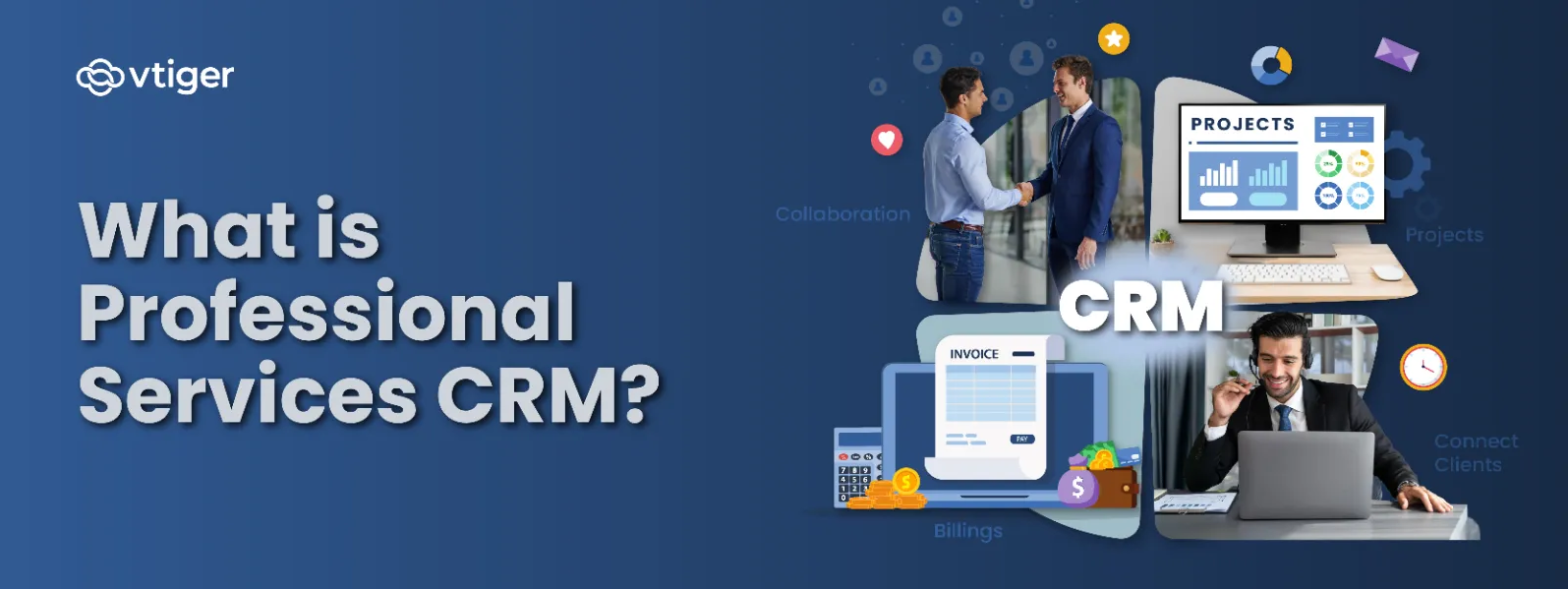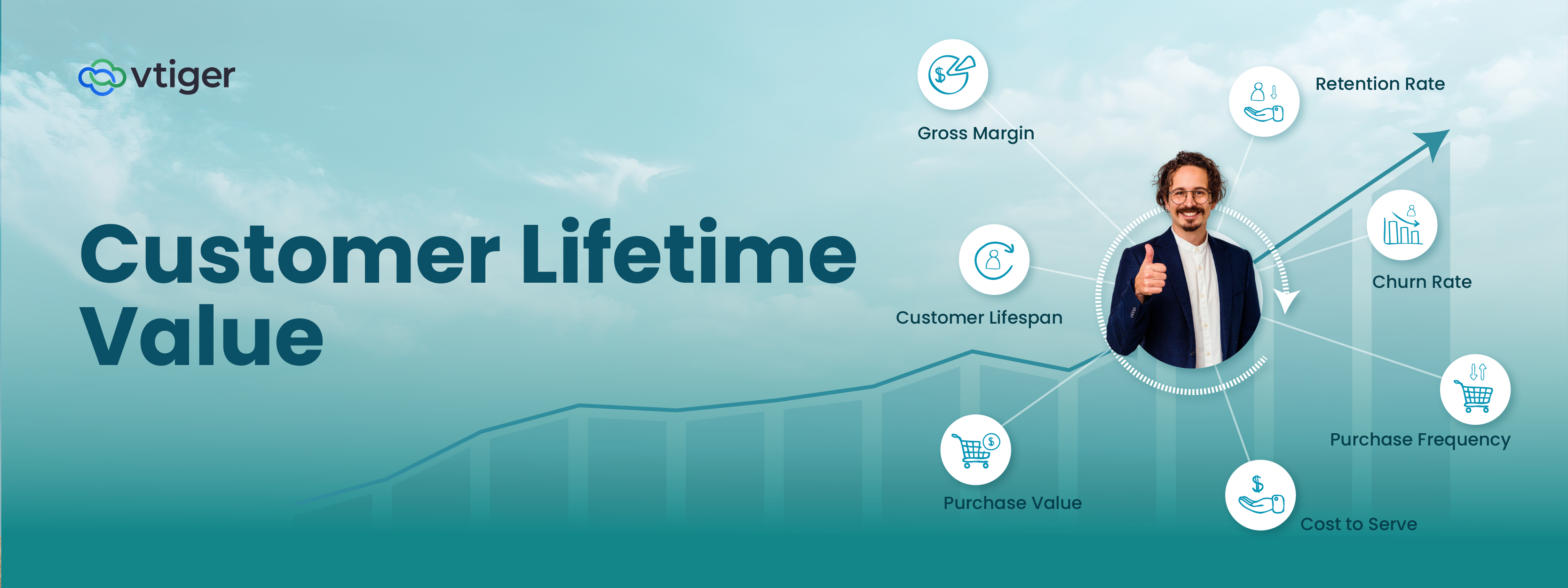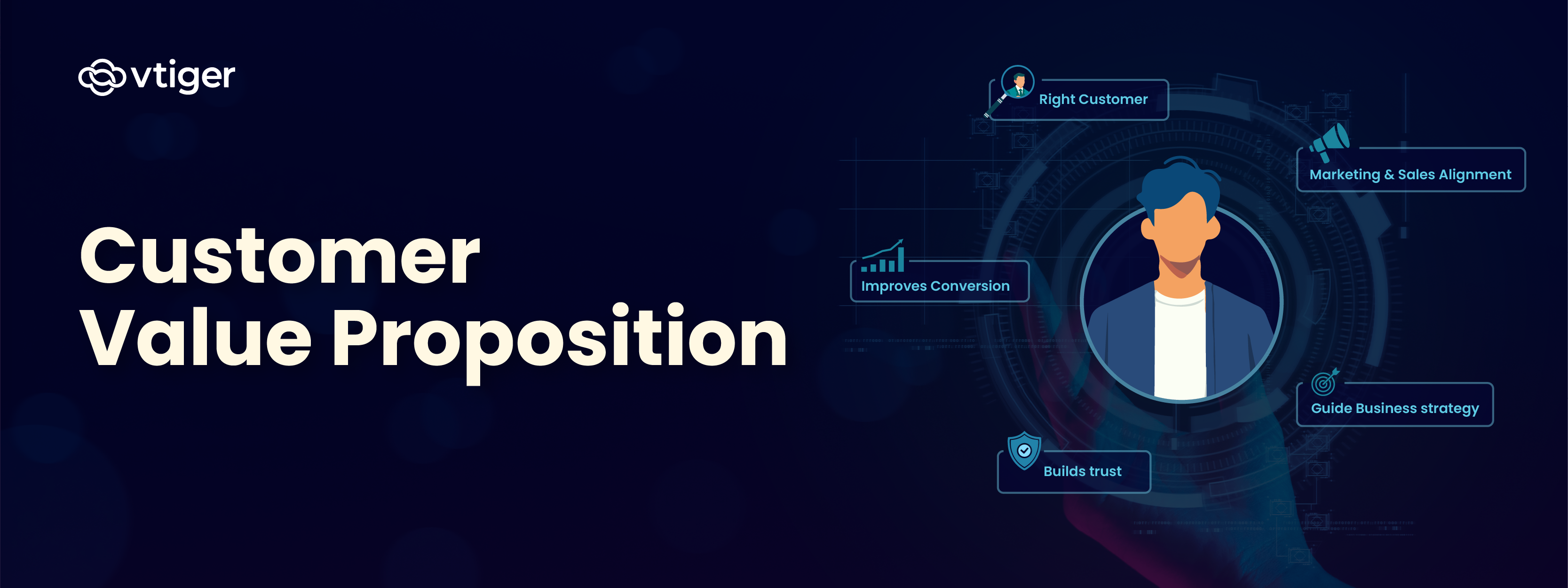After the industrial revolution and the adoption of manufactured products for daily consumption in the late 1800s, the modern business economy is now powered by services.
From IT consulting and financial advisory to legal expertise and digital agencies, service providers thrive by managing relationships while delivering results. CRM, or Customer Relationship Management, was once primarily viewed as a tool for sales teams to track leads and close deals. That definition does not fully apply to the service-based industry. For them, real success doesn’t end with winning a client. Their survival in this tough market environment depends on keeping projects on schedule, maintaining transparent billing, honoring contracts, and ensuring smooth communication at every step.
Professional Services CRM was designed to connect clients, projects, billing, and collaboration in one system. This platform brings structure into both workflows and communications with clients, providing the ‘visibility factor’ that helps firms build trust, deliver consistently, and grow with confidence.
What Is a Professional Services CRM?
Professional Services CRM is purpose-built software that works alongside functioning as contact storage and sales funnels to support how service firms actually operate. It’s designed for industries where delivery is project-heavy, timelines are strict, and billing structures vary; like IT consulting, legal advisory, or financial services.
Instead of solely focusing only on customer acquisition, it integrates the operational layers that matter most: drafting proposals, managing contracts, assigning resources, and tracking client deliverables. Time logs, billable hours, and recurring retainers can be tied directly to invoicing without manual reconciliation.
Other than financial aspects, it keeps collaboration seamless by giving every team member access to project notes, client history, and compliance documents in one shared environment. This makes it less of a sales utility and more of an execution platform; one that allows service providers to manage commitments with precision while building long-term client relationships.
How Does Professional Services CRM Work?
Professional Services CRM functions as a workflow simplifier that links client acquisition, project execution, and billing into one connected system. Along with the isolated apps, it unifies leads, contracts, tasks, time, and communications. Each stage of service delivery can be automated, monitored, and optimized within the same platform.
Lead Capture
Professional services often rely on referrals, inbound requests, and long-term client nurturing. The CRM centralizes incoming leads from multiple sources like website forms, LinkedIn, or email and creates structured records. This ensures no inquiry is lost while qualifying prospects with relevant service-specific data.
Proposal and Contract Management
Once leads are validated, proposals and contracts can be drafted, sent, and tracked directly from the CRM. Version control, e-signatures, and approval workflows minimize administrative delays while maintaining compliance.
Project Planning & Task Assignment
The CRM organizes service delivery by breaking projects into phases, assigning resources, and setting deadlines. Gantt views, Kanban boards, and calendar sync keep teams aligned and accountable.
Time Tracking & Billing
Billable hours, retainer contracts, or milestone payments can be recorded in real time. CRMs connect timesheets with invoicing systems to reduce manual reconciliation.
Client Communication and Updates
Clients value clarity as much as the service itself. CRMs streamline touchpoints by syncing conversations, reminders, and shared spaces in one place.
Performance Reporting
Measuring outcomes is just as critical as delivering work. CRMs provide insight into team utilization, revenue projections, and client satisfaction in real time.
Who Needs a Professional Services CRM?
A CRM for professional services isn’t limited to one sector. Different industries rely on it to cut repetitive work, build stronger client relationships, and manage projects more effectively. Here’s how various professionals benefit:
IT Consulting Firms
Tech consultants rarely focus on one assignment at a time. They might be fixing system bugs for one client while planning a migration for another. A CRM helps them track every issue and progress update without getting buried in emails.
Legal Service Providers
For lawyers, a missed detail could change the course of a case. With a CRM, case files, meeting notes, and deadlines stay connected. It becomes simpler for a lawyer reviewing contracts to pull up the right information in seconds.
Marketing and Digital Agencies
Creative work moves fast, and so do client expectations. A CRM provides agencies with a single hub to manage briefs, approvals, and campaign progress. If feedback arrives late, the team can reschedule tasks without disrupting the overall delivery flow.
Chartered Accountants and Financial Advisors
Numbers demand accuracy, but so do timelines. A CRM ensures financial advisors never miss tax dates, audit reminders, or client updates. Imagine tracking an entire year of tax returns with alerts that keep both advisor and client prepared.
Engineering and Architectural Service
Designers and engineers manage projects that evolve at every stage. A CRM enables them to log blueprint changes, share updates with contractors, and keep revisions visible, ensuring clients are always informed about the project’s status.
HR and Recruitment Firms
Hiring is not just about finding talent, it is about maintaining momentum. A CRM lets recruiters follow every candidate through applications, interviews, and offers. This way, no employer waits too long for updates and no candidate feels overlooked.
Key Features of a Professional Services CRM
Professional services rely on accuracy, organization, and client satisfaction. A CRM tailored for these lines of work focuses on features that simplify project management, enhance billing accuracy, and strengthen client communication. The following list of features showcases a group of capabilities that can directly support service providers in managing work more efficiently:
Project and Task Management
Client projects demand structure, not scattered notes. A CRM with project and task tools helps firms plan deliverables, assign responsibilities, and track progress from a single place. Whether it’s a consulting report or a legal document draft, teams always know what’s pending and who is accountable.
Time Tracking and Resource Allocation
Service firms succeed on billable hours. With built-in time tracking, consultants, accountants, or engineers can log work as they go. Resource allocation ensures talent is distributed wisely, so no team member is stretched thin while clients still receive the attention and expertise they expect.
Invoicing and Billing Integration
Professional services often juggle project execution and client billing. A CRM that ties in invoicing removes the gap between completed tasks and payments due. By generating bills directly from logged hours and project milestones, firms reduce manual errors and speed up their cash flow cycles.
Document Sharing
From contracts to creative briefs, professional services thrive on documents. A CRM with secure file sharing keeps every version in one place. Teams avoid the chaos of email chains, while clients access the latest files without confusion, building trust in how projects are managed.
Email Integration
Communication with clients can’t afford to slip. Email integration within a CRM brings client correspondence into the same space as project records. This makes it easy to reference past discussions, respond promptly, and ensure every decision or request stays tied to the right client record.
Pipeline and Forecast Tracking
Future revenue matters as much as ongoing work. Pipeline and forecasting tools help professional services firms see which deals are close to signing and which may need attention. By understanding potential revenue flow, leaders can plan staffing, manage growth, and balance client commitments more effectively.
Client Lifecycle Management
Clients don’t stay at one stage forever. A professional services CRM helps track the full journey, from onboarding through active projects and long-term retention. This clear visibility supports stronger client engagement, personalized service, and opportunities for cross-selling or expanding into new areas of support.
Real-time Reporting and Dashboards
Decisions become sharper with data in hand. Real-time dashboards in a CRM show leaders how projects, finances, and client relationships are performing. Service firms can quickly spot delays, identify top-performing accounts, and act before small issues turn into bigger challenges for the business.
Benefits of CRM for Professional Services Businesses
A professional services CRM influences measurable improvements in how firms operate and serve clients. The following benefits demonstrate how it addresses everyday challenges while also enhancing productivity and revenue.
Centralized data access
Data scattered across emails, documents, and legacy systems increases errors and slows service delivery. A CRM brings client, project, and performance data into a single platform accessible to authorized users.
Improved client communication
Professional services firms struggle with fragmented conversations across different channels, often and frequently. A CRM consolidates every interaction in one record, reducing gaps and miscommunication. Teams can provide consistent responses, resolve issues faster, and build reliable communication patterns.
Higher project visibility
Project delays frequently stem from limited oversight or unclear status tracking. A CRM provides real-time visibility into project progress, task ownership, and milestones. Managers can identify bottlenecks early and adjust resources before issues escalate. This level of oversight reduces risks of overruns, ensures smoother delivery, and supports predictable billing cycles.
Better workload management
Unbalanced distribution of work often leads to overworked staff on one side and underutilized capacity on the other. A CRM highlights task allocations and upcoming deadlines, enabling managers to optimize assignments. By preventing overload and aligning skills with project needs, the system improves team morale and efficiency.
Enhanced customer retention
Clients often disengage when follow-ups are delayed or service delivery feels inconsistent. A CRM helps track preferences, history, and service patterns, allowing firms to meet expectations more accurately. Consistent engagement fosters stronger client confidence and encourages repeat contracts. Retention improvements reduce reliance on new client acquisition, which lowers marketing costs.
Data-driven decision-making
Relying on assumptions makes growth planning unreliable. A CRM provides actionable insights into client profitability, service efficiency, and workload distribution. With access to accurate data, leaders can refine service offerings, allocate resources effectively, and identify growth opportunities.
CRM vs. Project Management Tools: What’s the Difference?
While both systems support professional services businesses, their roles differ. A CRM emphasizes client-facing priorities, whereas project management tools handle delivery within teams. For service providers, the real value lies in combining the two; managing relationships while keeping project execution on track.
| Aspect | CRM for Professional Services | Project Management Tools |
| Primary Purpose | Strengthens client relationships, manages pipelines, and tracks opportunities across the service lifecycle | Organizes project execution, team tasks, and deadlines |
| Focus Area | Client acquisition, retention, and service continuity | Delivery efficiency and internal coordination |
| Data Handling | Centralizes client profiles, history, and engagement records | Structures project milestones, deliverables, and progress updates |
| Decision Support | Provides insights on revenue forecasts, client health, and relationship value | Offers clarity on workload distribution, timelines, and resource needs |
| Value for Services Firms | Ensures long-term client satisfaction and repeat business while identifying new opportunities | Ensures timely delivery and optimized resource use within ongoing projects |
| Combined Role | Blends both: managing client relationships while linking them to project outcomes for a full business view | Limited to execution without client-facing insights |
Challenges in Adopting CRM for Service-Based Businesses
While CRMs can significantly improve visibility and collaboration in service-based businesses, adoption is rarely seamless. The sector’s reliance on specialized workflows, client knowledge, and partner-led decision-making introduces hurdles that extend beyond software setup. Success relies on addressing these challenges proactively.
Resistance to change
Consultants and partners may hesitate to move away from long-used methods such as spreadsheets or personal records. Communicating how a CRM reduces time on routine tasks and strengthens visibility across client relationships helps build confidence.
Lack of customization
Generic CRM setups may not reflect service workflows like engagement scoping or knowledge sharing. Choosing a system that can be configured to industry nuances is essential to avoid friction.
Poor user training
Different roles within a firm interact with CRM in various ways. Training that addresses these variations ensures consistent adoption instead of one-size-fits-all sessions.
Data migration issues
Historic contracts, client communications, and deal notes often sit across fragmented tools. A carefully planned migration with quality checks ensures the new system is not left feeling incomplete.
Overcomplexity for small firms
Boutique consultancies may find feature-heavy CRMs excessive. Beginning with a simplified setup and scaling gradually allows smaller teams to see immediate value without overwhelm.
How to Choose the Right CRM for Your Professional Services Firm?
A CRM software for professional services cannot be treated as just another sales tool. The right platform should align with the way your firm manages clients, projects, and knowledge. Use this checklist to guide your selection.
Industry-specific features
A professional services firm operates on a range of client projects, proposals, retainers, and time-based billing. A CRM designed for product sales cannot fully capture these needs. Look for features that recognize service-driven workflows rather than treating them as an afterthought.
Integration with existing tools
Your team already relies on billing software, shared calendars, and email. A CRM that connects smoothly with these tools makes daily tasks easier and avoids duplicate effort. Without this integration, the system becomes an added burden rather than a solution.
Scalability
Growth brings new practice areas, geographies, and team members. The CRM you choose should have the flexibility to accommodate these changes without requiring a complete replacement once your firm expands.
Usability and UI
Adoption depends on ease of use. Professionals are more likely to embrace a system that feels intuitive and straightforward. A cluttered or confusing layout results in slow adoption and wasted investment.
Support and implementation help
A reliable vendor provides more than software. Hands-on support during implementation and ongoing training ensures the system works for your firm’s unique needs rather than forcing new habits.
Reporting and analytics
Look for reporting that uncovers client profitability, team utilization, and cross-selling opportunities. Simple revenue tracking is not enough for a services business.
Steps to Implement a Professional Services CRM Successfully
Introducing a CRM into a service-driven business is best approached as a guided process rather than a one-time installation. With the right steps, firms can make the transition smooth, secure, and productive for both employees and clients.
Step 1: Assess your current processes
Start by looking at how your firm handles clients today. A consulting team may be juggling client proposals across spreadsheets, while an accounting practice might be tracking invoices manually. Write down what works and where delays usually occur.
Step 2: Choose the right CRM
Professional services firms deal with leads (which are already a few unlike B2C, where the consumer base is in the 1000s), marketing and service delivery. For instance, a legal firm benefits from matter tracking, while an IT services provider might prioritize ticket management and recurring billing.
Step 3: Migrate data carefully
Moving to a new CRM is like shifting offices. Old client records, case notes, and billing histories cannot be left behind. Before importing the data, clean it up. Remove duplicates, correct errors, and ensure every important client interaction is properly logged. A neat migration makes the system reliable from day one.
Step 4: Customize workflows
Every firm has its own way of functioning., A consulting firm might need workflows for proposal approvals, while an architecture practice may require milestone-based billing. Configure the CRM to mirror these routines.
Step 5: Train your team
Introducing a CRM is not about the technology, it is about helping people work smarter. Organize training that focuses on real tasks like logging client calls, creating proposals, or tracking billable hours.
Step 6: Start small, scale gradually
A full rollout on the first day can overwhelm your staff. Begin with one department or project type. For instance, a consulting firm could start by tracking proposals and client meetings, then expand to billing and reporting. Gradual expansion gives room for feedback and adjustments without disrupting the entire organization.
Step 7: Monitor and optimize regularly
Once the CRM is in place, treat it as a living system. Review reports to see if deadlines are being met, check whether client follow-ups are consistent, and adjust workflows when needed. Firms that revisit and readjust their CRM every quarter keep the tool aligned with growth and evolving client expectations.
Conclusion
Service firms depend on organized client records, timely billing, and smooth project handovers. A CRM ties these moving parts together so that delivery feels less manual and more predictable. It saves time otherwise spent chasing information and gives managers a clearer picture of client commitments.
Adoption usually succeeds when firms first examine their own way of working. Reviewing existing processes, cleaning client data, and preparing staff make the shift less disruptive. Teams adjust better when the rollout is gradual rather than rushed, allowing the system to settle into everyday work.
For firms with unique service models, proprietary platforms may not always fit. Open-source CRMs offer the flexibility to design processes in line with the firm’s unique way of working, making the system adaptable rather than restrictive.
FAQs on Professional Services CRM
What is a Professional Services CRM used for?
A Professional Services CRM helps firms manage client relationships, project timelines, and billing schedules in one place. It centralizes client records so teams do not need to juggle spreadsheets or emails for critical information. Consultants, agencies, and advisory firms use it to keep track of proposals, project handovers, and client communications, ensuring delivery feels coordinated and professional across the service cycle.
How is it different from regular CRM software?
Regular CRMs often focus on sales pipelines and retail transactions, while a Professional Services CRM is built around client engagements and ongoing projects. It helps firms manage billable hours, recurring client retainers, and project delivery timelines. Instead of just tracking leads, the system allows service-driven companies like law firms, consultants, or agencies to manage deliverables, resources, and invoicing, which aligns directly with service delivery models.
Can small consulting firms use a CRM effectively?
Yes, small consulting firms can benefit from CRM tools just as much as large firms. Many platforms offer affordable subscription plans or even open-source options that fit tighter budgets. A CRM helps small teams manage client records, track deliverables, and streamline billing. It reduces manual errors and ensures consultants spend more time serving clients instead of managing paperwork or chasing payment reminders.
Does a CRM help with invoicing and billing?
Modern CRMs for professional services often come with built-in invoicing and billing features. Firms can generate invoices directly from the system, track payment status, and even set reminders for overdue accounts. This reduces the need for separate billing software and keeps financial records aligned with client projects. Accurate billing linked to project timelines ensures transparency and minimizes disputes, which is crucial in professional service delivery.
Is CRM software secure for storing client data?
Yes, professional services CRMs are designed with data security as a core feature. They use encrypted storage, secure logins, and access controls to protect sensitive client information. Many providers also comply with international standards such as GDPR or SOC2, which reassures firms handling financial or legal data. Choosing a trusted vendor ensures that confidential client records remain protected against unauthorized access or accidental loss.
How long does it take to implement a CRM?
The time needed depends on the size of the firm and the level of customization required. For small consulting firms, implementation may take a few weeks if data is clean and processes are simple. Larger firms with multiple service lines or legacy records may require a few months. Careful planning, data migration, and team training all play a role in how quickly adoption takes place.
What is the cost of CRM software for professional services?
The cost of CRM software varies widely depending on features and scale. Subscription-based tools may start at a few thousand rupees per user each month, while advanced platforms with automation and analytics can cost significantly more. Open-source CRMs can lower licensing expenses but may require technical support. For most firms, the cost is justified by the efficiency gains in client management and project delivery.
Can CRMs integrate with tools like Gmail, Zoom, or QuickBooks?
Yes, most professional services CRMs integrate easily with common tools used by service firms. Linking with Gmail allows smoother email tracking, Zoom integrations help manage virtual client meetings, and QuickBooks connections support seamless invoicing and accounting. These integrations reduce duplicate work and keep communication, billing, and scheduling in one connected system. This makes daily workflows more efficient for consultants and client-facing teams.
Do CRMs help improve customer retention?
A CRM makes it easier to retain clients by ensuring communication and service delivery remain consistent. The system can track client preferences, follow-up dates, and project progress, reducing the chance of missed commitments. Automated reminders help consultants stay engaged with clients after project completion. By creating a structured approach to service delivery, firms can build stronger trust and long-term relationships, which directly improve client retention.
Is training necessary to use CRM tools?
Yes, training is essential for a successful rollout. Even if the system is user-friendly, service teams need guidance on how to manage records, update projects, and use reporting features effectively. Without training, adoption may feel patchy and processes may not be followed consistently. A few structured sessions ensure the CRM becomes part of the daily workflow rather than feeling like an additional task.



